- Introduction
- What is Personal Injury Law?
- What Warrants a Personal Injury Claim?
- What Compensation Can You Recover in a Personal Injury Claim?
- How is Liability Determined in Personal Injury Cases?
- What Cases Do Personal Injury Lawyers Take?
- What Are the Legal Components of Personal Injury Cases?
- Should You Represent Yourself in a Personal Injury Case?
- How Much Do Personal Injury Lawyers Charge?
- When Should You Hire a Personal Injury Lawyer?
- The Steps of a Personal Injury Lawsuit
- What to Look for in Your Search for a Personal Injury Lawyer?
- Frequently Asked Questions
- Conclusion
Victims of accidents are probably looking at substantial medical bills, pain and suffering, lost wages, and a drastic change in everyday life. The next steps can be intimidating and confusing – especially since most victims are experiencing the personal injury law process for the first time.
Many victims believe they are out of luck and cannot afford a good attorney following an accident.
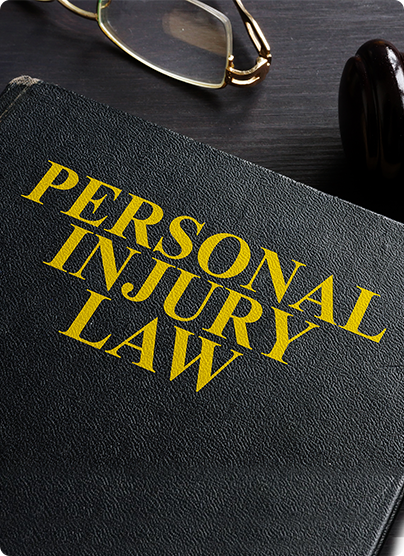
This is a big misconception. Personal injury laws exist to help victims put their lives back together and hold the at-fault party liable for damages.
Hiring a personal injury attorney to represent you will not cost a penny out of pocket. We’ll explain this part later.
This guide is an all-inclusive resource with everything you need to know about personal injury law – and your path to seeking justice.
WHAT IS Personal Injury Law?
Personal injury law, as defined by the American Bar Association:
“Personal injury law, also known as tort law, is designed to protect you if you or your property is injured or harmed because of someone else’s act or failure to act. In a successful tort action, the one who caused the injury or harm compensates the one who suffered the losses.”
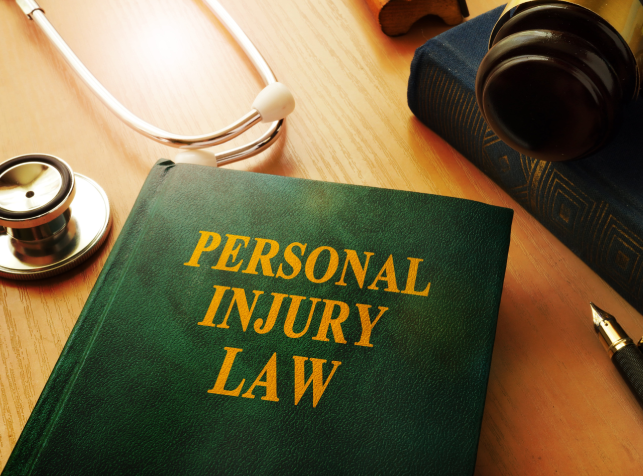
The ripple effect of a personal injury can be much bigger than many assume.
For example, say you get in a car accident and suffer a spinal cord injury – of which the at-fault party caused by texting and driving. This injury will require significant medical treatment (and expenses), may impair your ability to perform your job, decrease your quality of life, and have a plethora of lasting damages.
As the victim of this accident, you shouldn’t have to face financial hardships because of the other driver’s carelessness. Personal injury law is there to assist accident victims in earning fair compensation for every medical bill (current and future), every dollar lost due to the inability to work, property damage, and everything else.
Now, the effects of a personal injury go beyond financial losses. Suffering an injury can substantially compromise your quality of life.
For instance, spinal cord injuries can land you in a wheelchair. Whether it’s temporary or permanent, this has a serious impact on your daily life. You can’t go up and down stairs, ride your bike, exercise, and so on. These compromises in everyday life may result in mental and physical anguish, which is referred to as “pain and suffering”.
A personal injury claim will account for every damage you suffered, holding the at-fault party liable for ALL your struggles.
WHAT Warrants a Personal Injury Claim?
A personal injury claim is warranted when a victim suffers damages to their health, reputation, or emotional well-being due to another person or entity’s negligence or recklessness. Common examples would be car accidents, pedestrian accidents, workers’ compensation, medical malpractice, and so on.
If the court finds the at-fault party responsible for the victim’s injury, they will be held liable to provide compensation for all damages accrued. The victim will work with a personal injury lawyer to file a claim against the at-fault party.
The claim is a demand for a certain amount of compensation – as well as the justification. This will include evidence that attributes liability, all medical bills (current and future), property damage, pain and suffering, and every other damage incurred from the injury.
It will then be up to the victim’s personal injury attorney and insurance company to negotiate a fair settlement.
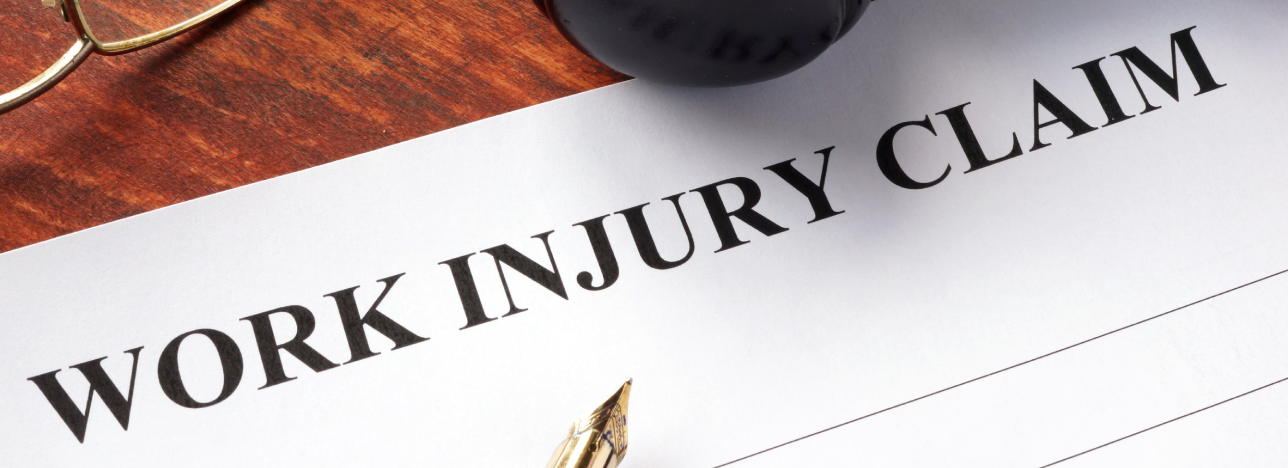
What Compensation Can You Receive in a Personal Injury Case?
There are many, many damages you can potentially recover in a personal injury case – even in minor accidents. When you speak with a personal injury attorney, they will help you account for every hardship you faced – and place a clear value on them.
Damages are generally grouped into two categories: economic and non-economic damages.
1. Economic Damages
Economic damages are straightforward with clear price tags attached. The most common economic damages include (but are not limited to):
Bills
Damage
Adding up economic damages is relatively easy. You’ll need to keep track of every invoice, receipt, repair, and documentation to build your claim.
2. Non-Economic Damages
Non-economic damages are a bit more subjective than economic damages – as they are non-tangible with no invoices. These damages refer to the personal hardships you faced following the accident.
For instance, say you are an athlete and suffered a head injury in a car accident. Per the doctor’s orders, you can no longer participate in the sport – or even exercise. This would have an impact on your quality of life. With a skilled personal injury attorney, you would negotiate for these damages in the claim.
Another common example is with brain injuries. In some cases, brain injuries can result in lifelong limitations – which may prevent you from earning a living or maintaining a social life. These issues must be accounted for when building a personal injury claim.
The most common non-economic damages include (but are not limited to):
Suffering
Companionship
Quality of Life
But How do Attorneys Place a Monetary Value on Non-Economic Damages?
Non-economic damages are a gray area in personal injury law. This is typically the most complicated part of the settlement negotiation.
When you meet with your personal injury lawyer, they will likely ask you a series of questions:
Significant Pain
From the Accident?
any Mental Health
Issues?
New Limitations –
Physically or Mentally?
You Think These
Limitations Will Last?
Require Future
Medical Treatment?
Be as detailed as possible in your answers – as they will form the basis of how you value the damages.
There are two primary ways to calculate the value of non-economic damages: the multiplier method and per diem.
The Personal Injury Multiplier Method
The multiplier method is based on the severity of your pain and suffering. The severity is measured on a scale from one to five – one being the least and five being the most. You and your attorney will agree on a number, which is then multiplied by the total economic damages.
Let’s say you got in a car accident and broke your collarbone.
Medical bills add up to $20,000 and you weren’t able to work for six weeks – costing you $5,000 in lost wages. You will struggle to have a full range of motion in your arm indefinitely, so we’ll assign the severity of the injury a four.
Here is what the formula would look like:
Your personal injury attorney would factor this figure into your claim.
The Personal Injury Per Diem Method
The per diem method determines the value of your pain and suffering on a daily basis. Usually, your personal injury lawyer will create an estimate and multiply it by the number of days you were struggling with your injury.
Going back to the broken collar bone example: let’s say you were wearing a sling for six weeks, then had to take pain medication for an additional four weeks. This would equate to roughly 70 days of pain and suffering. If you make $100,000/year, it comes out to $400 for 250 business days.
This per diem method would take your $400/day rate and multiply it by the 70 days you were struggling – bringing the total demand to $28,000.
The per diem method doesn’t usually apply if the injuries are long-term, like a traumatic brain injury or permanent disability.
Whether you and your personal injury lawyer use the multiplier or per diem method to quantify pain and suffering, the other party’s insurance company will contest these amounts as much as possible. You’ll need a skilled attorney to attempt these negotiations.
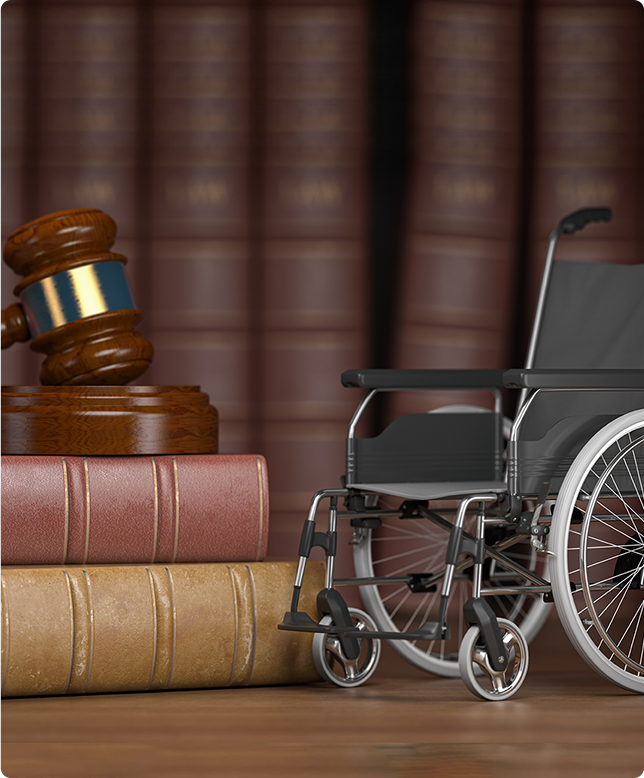
How is Liability Determined in Personal Injury Cases?
Liability is the core of all personal injury cases. In the eyes of the law, everyone is assumed accountable for their actions.
Additionally, the law assumes that everyone has a duty to act in a way that doesn’t cause harm to another. In other words,
everyone has a duty to not cause injuries.
Liability can be summed up by several key points:
Duty to Not Harm
Others.
Perform This Duty – due
to Negligence or
Recklessness.
an Injury Because this
Person Failed to Perform
Their Duty.
Earning fair compensation depends on your ability to prove liability. This can be determined in several ways. For one, the at-fault party might admit fault. Other cases may require a judge and jury to examine evidence from all parties to assign liability.
Attributing liability can get complicated. Some accidents may be caused by both parties – both of which are claiming the other party is liable.
Can Liability Be Shared in
Personal Injury Cases?
Yes, fault can be shared, but it’s not that simple. Illinois is one of the states that has modified comparative fault.
Modified comparative fault – also referred to as modified comparative negligence – follows the 51% rule. This means if you are 51% at fault for an accident, you are barred from collecting compensation.
Comparative fault dictates how the responsibility for an accident is shared. For example, say Jack is speeding down the road and Randy makes a left-hand turn, hitting Jack’s vehicle. In this situation, both drivers would have contributed to the accident. The insurance companies would apply comparative negligence laws to determine who will be liable for the damages.
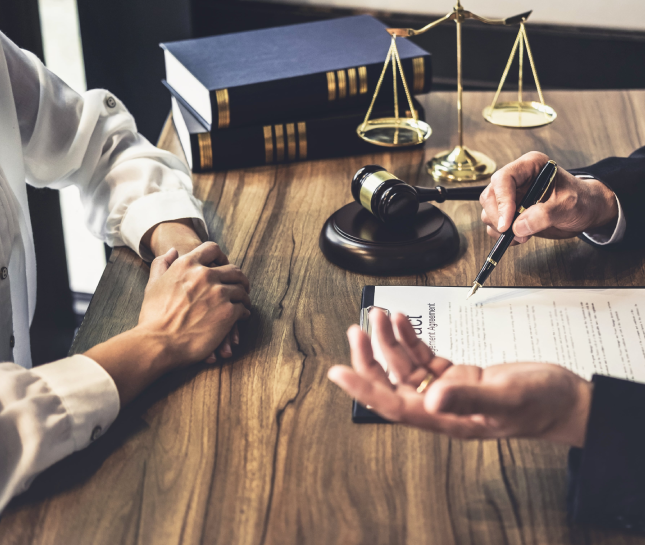
What Cases Do Personal Injury Lawyers Take?
Personal injury law is an umbrella term that encompasses a range of scenarios. Most personal injury cases are due to accidents, while others are due to negligence and recklessness. The most common types of personal injury cases include (but are not limited to):
1. Nursing Home Injuries
Nursing home injuries are an unfortunate reality – but one that cannot be ignored. Now that the baby boomer generation is reaching senior citizen status, the number of citizens living in nursing homes will only increase.
Transferring a loved one to a nursing home is a big, uneasy decision. Families make this choice because their loved one needs assistance to maintain their health and safety. But the truth is that many nursing homes are plagued with financial and staffing issues – which leads to incidents on a daily basis.

Here are some of the most prevalent issues that take place in nursing homes:
Now, not all nursing home injuries are caused by accidents – and not all injuries are physical. If you notice any cuts, bruising, torn clothing, mysterious injuries, unexplained charges, signs of depression, or anything else unusual in your loved one, get in contact with a specialized nursing home attorney. They might be a victim of abuse or negligence.
2. Car Accidents
Car accidents are arguably the most common types of personal injury cases. The United States Department of Justice found that roughly 52 percent of personal injury cases stem from car accidents.
As of 2021, there were 289.5 million vehicles registered in the United States. With this many drivers, there are bound to be accidents. While you can’t control how other people drive, you can hold them accountable if they cause a collision.
Injuries from car accidents can have life-long consequences. These can be physical, mental, and financial. If you were injured in a car accident that was NOT your fault, the law is on your side. Earning fair compensation comes down to the actions you take following the accident.

What to do after an accident that’s not your fault:
Knowing what to do after a car accident can be difficult – as you may be in shock. No one can plan for a car accident, but we believe everyone should have a protocol in mind if it happens. Assuming you’re not severely injured, here are the proper steps to take following an accident:
Prioritize Your Safety
Your first order of business is to protect yourself from further injuries. Turn your hazard lights on. If you are on a busy road or highway, get to the shoulder. If you can, try to take some pictures of the accident before you move the vehicle.
Take More Pictures
Pictures will be critical pieces of evidence in your personal injury claim. The more pictures you take of the accident, the better. Try to capture different angles of the damage and any injuries you have. The pictures you take will be used to attribute liability and form your claim.
Call the Authorities
Regardless of the severity, you always need to call the police after a car accident. The official report is a key ingredient in a personal injury case. If you have serious injuries, call the emergency line.
Get Examined for Injuries
Some injuries can take hours – or days – to become evident after a car accident. Even if you don’t feel any pain, you need to get checked by the medical staff. These professionals can spot the early signs of injuries and will perform a number of tests to detect anything out of the ordinary.
Exchange Information with the Other Driver
Collecting information is standard procedure after a car accident, you’ll need the other driver’s:
- Name
- Phone number
- Address
- Driver’s license number
- License plate
- Insurance provider
- Location of the accident
Get in Touch with a Car Accident Lawyer
The next step is meeting with a personal injury lawyer who specializes in car accidents. Keep in mind, earning a settlement after an accident requires negotiations with insurance companies. Even if the other party was clearly at fault, their insurance company has no intention of paying fair compensation.
The car accident lawyer you hire will handle all these communications and fight for a fair settlement. Once you hire an attorney, they will manage the process from there.
The first steps you take after a car accident are very important. Following the steps listed above will put you in a position to earn maximum compensation for your injuries.
3. Truck Accidents
Truck accident law is much different than typical car accidents. Not only are commercial truck accidents more dangerous, the legal process usually involves big trucking companies with complex insurance policies. You’ll need an experienced truck accident injury attorney to manage your claim.
Trucking accidents can happen for many different reasons. The most common causes include (but are not limited to):
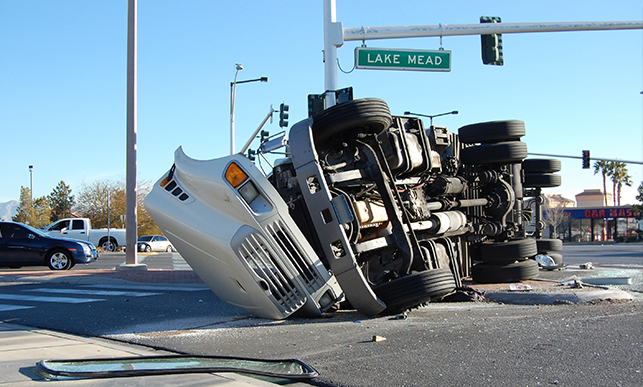
Timeliness is everything after a trucking accident. These companies waste no time in taking action – as they are obligated to protect themselves. The best thing you can do is contact a trucking accident attorney as soon as possible to get the process started.
4. Motorcycle Accidents
Motorcycle accidents can be devastating. Unlike a car or truck, motorcyclists are not protected by four metal walls. Even at lower speeds, the risk of serious injury or death is very high. According to the Government’s Highway Safety Association, more than 14 percent of road fatalities involve motorcyclists.
The most common causes of motorcycle accidents include (but are not limited to):

Medical bills can quickly add up after a motorcycle accident – in addition to lost wages, pain and suffering, and a host of other damages. If you’ve been injured, you need to get the motorcycle accident law process started immediately. In Illinois, you have two years to file a personal injury claim. The sooner you get the ball rolling, the better.
Note: Even though it’s not always required to wear a motorcycle helmet in Illinois, we strongly recommend it.
5. Bicycle Accidents
Similar to motorcycle accidents, bicyclists are extremely vulnerable on the road. According to the CDC, there are roughly 130,000 bicyclists injured every year – and over 1,000 fatalities. Bicycle accidents can result in lifelong damages. If you were injured in a collision that was not your fault, you have options to seek compensation.
Most bicycle accidents are caused by other motorists, but this is not always the case. Other common causes of bicycle accidents include (but are not limited to):
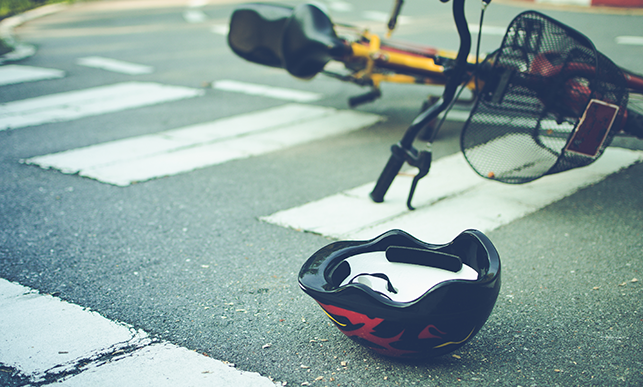
Bicyclists
Streets
Violations
Trying to navigate the legal process – in addition to recovering from injuries – is not a task that victims should have to face. The first step in earning justice is to partner with a specialized bicycle accident lawyer to manage your claim.
6. Slip and Fall Accidents
Not all injuries are caused by another person’s error. Slip and fall accidents happen on job sites, in stores, commercial buildings, residences, and so on. Owners of these establishments have a duty to uphold a standard of safety. If negligence breaches this duty and results in someone’s injury, they may be liable for the damages suffered.
Some of the most common causes of slip and fall injuries include (but are not limited to):
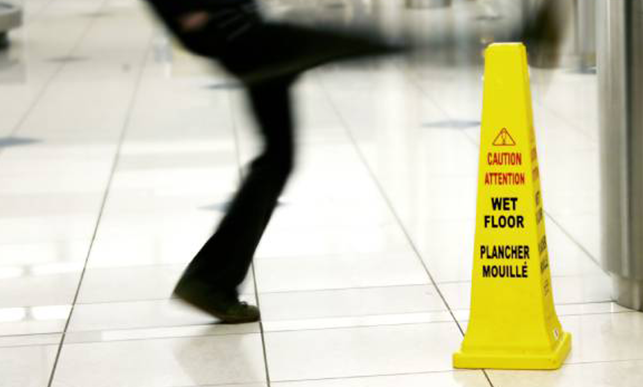
Surfaces
Premises
Flooring
Defects
Objects
Lighting
Seeking justice after a slip and fall can be a complicated process. These incidents can be embarrassing –you might have the urge to leave the situation as quickly as possible. You’ll need to document the area and conditions that led to the accident. A slip and fall accident lawyer will instruct you on everything you need to build your claim.
7. Medical Malpractice
Medical malpractice is a common reality in our healthcare system. Studies have found that errors in the medical field account for over 250,000 deaths every year in the United States – making it the third leading cause of fatalities.
Healthcare providers have a duty to perform safe treatment to all patients. Errors in surgery, diagnosis, medication, etc. are a direct breach of this duty. Some of the most common forms of medical malpractice include:
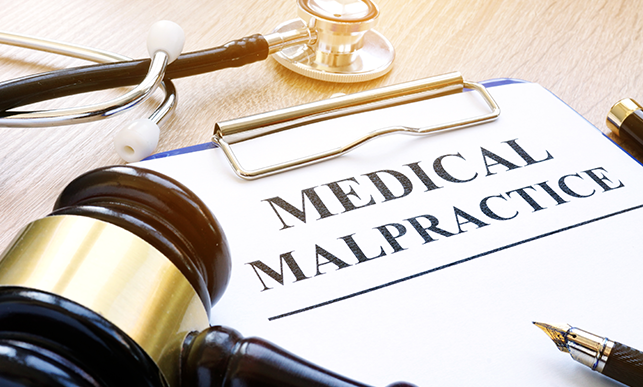
Injuries – physical or mental – from medical malpractice can be very difficult to recover from. If you or a loved one has suffered harm due to negligence by a medical provider, the fight for fair compensation may be intimidating. Hospitals and other medical establishments have legal teams on retainer to combat malpractice claims.
You need a skilled medical malpractice lawyer to fight for your justice. Your chances of recovering damages are extremely low, otherwise.
8. Dog Bites
The bond between dogs and humans is truly extraordinary. But not all interactions with them are friendly. Dog bites happen on a daily basis – and most victims are children. Common causes for dog bites include (but are not limited to):

Generally speaking, not all dog bites are the fault of the dog and the owner. However, the state of Illinois has a “strict liability” rule – meaning there are only a few rare exceptions in which the injured person can be held liable or partially liable for a dog bite. The law states:
“If a dog or other animal, without provocation, attacks, attempts to attack, or injures any person who is peaceably conducting himself or herself in any place where he or she may lawfully be, the owner of such dog or other animal is liable in civil damages to such person for the full amount of the injury proximately caused thereby.”
If you or a loved one’s dog bite meets the criteria above, you may be eligible for a personal injury claim with the help of a dog bite lawyer.
9. Construction Accidents
Construction accidents account for over 100 fatalities every week. Many injuries on the job can be attributed to the work environment and failure to adhere to mandated safety protocols.
The most common causes of construction accidents include (but are not limited to):
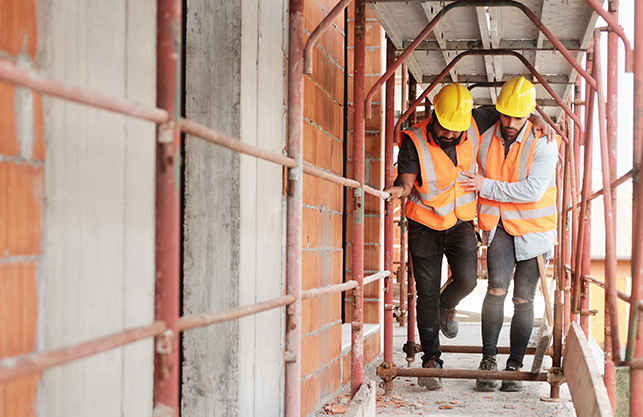
If you’ve been injured in a construction accident, you have the right to file a lawsuit against your employer. However, liability may also fall on third parties like outside contractors, equipment managers, and property owners. Payouts from employers are impacted by workers’ compensation laws – but compensation from third parties is not.
Get in touch with an experienced construction accident lawyer to learn more.
10. Pedestrian Accidents
Pedestrians are extremely vulnerable in the face of an accident. The most devastating incidents are usually attributed to negligence by motorists – and may result in lacerations, broken bones, spinal trauma, bruises, brain injuries, or even death. Other pedestrian accidents can be due to collisions with bicyclists or poor sidewalk/road maintenance.
The most common causes of pedestrian accidents include (but are not limited to):

Victims need to gather as much information as they can immediately after the accident. This involves taking pictures of the conditions, gathering witness information, and filing a police report. Afterward, you – and the help of a pedestrian accident attorney – will need to collect evidence to attribute liability and begin the claims process.
11. Workers’ Compensation
Workplace injuries can be ambiguous. Some are clear-cut, while others may not be obvious and result in lasting issues. Work injuries generally fall into two categories: injuries from a single event or repetitive motion injuries. This comes down to the job and task being performed.
Some of the most common workers’ comp injuries we’ve seen include (but are not limited to):

Single event injuries:
Repetitive motion injuries:
Earning a fair settlement for a workers’ compensation claim is no easy process. Workplaces are insured to cover such events – and these insurance providers have no intention of paying out victims. You’ll need an experienced workers’ compensation attorney to help attribute liability and investigate the incident.
Timing is everything in workers’ comp claims. The sooner you gather evidence and witness accounts, the more likely you’ll be to earn fair compensation.
12. Wrongful Death
Grieving the loss of a loved one is one of the hardest experiences a human can go through. This is made even worse if the loved one died due to another party’s negligence. In a wrongful death lawsuit, the beneficiaries, next-of-kin, and dependents are usually entitled to compensation.
Wrongful deaths can occur for a million different reasons. Some of the most common include (but are not limited to):
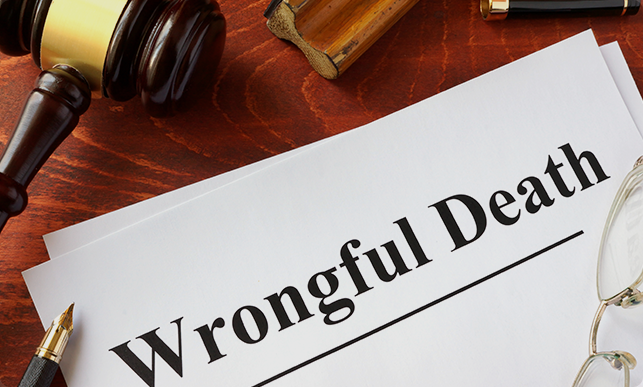
In Illinois and Indiana, a wrongful death lawsuit must be filed within two years of the incident. It’s imperative that you meet with a wrongful death attorney as soon as possible. Otherwise, the case could get dismissed due to failure to pursue justice promptly.
13. Birth Injuries
According to the CDC, nearly 3 out of 100 babies will suffer a birth injury. Some birth injuries are unavoidable, while others may be caused by negligence or inadequate care from physicians or nurses. If a baby is born with an injury – or the mother suffered trauma during birth – due to an error within the medical facility, you may be entitled to compensation.
Some of the most common birth injuries we’ve seen include (but are not limited to):

Timeliness is critical in a birth injury lawsuit. You’ll need to collect evidence and documentation quickly to attribute liability. Just like with medical malpractice, hospitals have high-powered legal defense teams on retainer to combat birth injury cases. Speak with a Chicago birth injury lawyer immediately to learn the next steps.
14. Brain Injuries
Traumatic brain injuries – referred to as TBIs – are not always immediately apparent. Some symptoms can take hours (or days) to appear. TBIs occur when an external force causes the brain to impact against the skull. Brain injuries usually involve a direct blow to the head or whiplash.
The effects can range in severity. These are common injuries experienced after car accidents, trucking accidents, sports, assaults, and so on.
The first step after any head injury is to seek medical attention. Even if you don’t feel any symptoms, professionals can spot early signs of TBIs and take proper measures. The most common signs of a brain injury include:

If you or a loved one has experienced a brain injury due to someone else’s negligence or recklessness, you deserve compensation for every single damage you are facing. Working with a specialized brain injury lawyer is crucial in earning a fair settlement. The professional will manage the heavy lifting in gathering evidence, attributing liability, and negotiating for the maximum settlement.
15. Civil Rights
Civil rights violations are extremely prevalent across the United States. Law enforcement officials took an oath to serve and protect the people. But unfortunately, we see instances of excessive force, discrimination, and other violations on a near-daily basis.
Some examples of civil rights violations include:
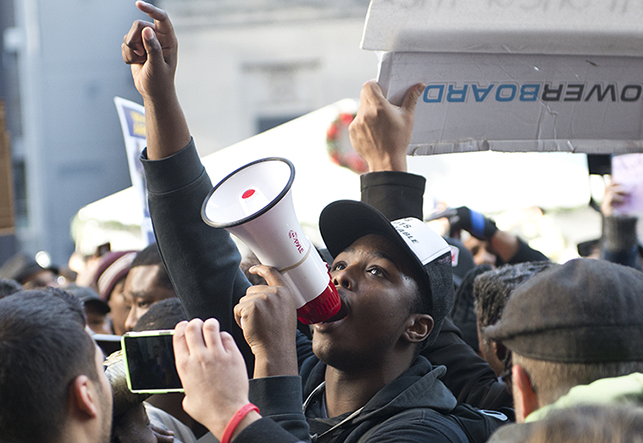
If you’ve been a victim of a civil rights violation, the law is on your side. While the process of seeking justice against police officers is rarely easy, it’s not impossible. Government agencies are equipped with legal teams to avoid responsibility for civil rights violations – and you need a professional to negotiate with them.
Earning compensation for damages depends solely on the civil rights lawyer you hire. Be picky in your choice. Ask for testimonials, past cases, success rates, and experience in the field.
What Are The Legal Components of Personal Injury Cases?
Personal injury cases must meet certain criteria to warrant a valid claim. Four key elements must be present
to pursue compensation. These include:
Every personal injury claim is based on the duty of the defendant to the claimant. Human beings have a general duty not to cause harm to others. For instance, motorists are obligated to drive safely on the road and keep other drivers safe. Another example would be the duty workplaces have to keep employees and patrons safe on the premises.
A personal injury claim can only exist if there is a breach of duty that resulted in physical, mental, or financial harm to the victim. Reckless driving that resulted in an accident or a company failing to maintain safety protocols in the workplace would qualify as a breach of duty.
The claimant must suffer physical, mental, and/or financial damages as a result of the breach of duty. Otherwise, a personal injury claim will not move forward. This element is dependent on evidence. You’ll need to collect all your medical documentation, invoices, estimates, and everything else that factors into the case. Your personal injury attorney will instruct you on what you need.
Arguably the most crucial element in personal injury cases is the causation. This involves attributing liability to the at-fault party. Claimants must prove that the defendant’s actions were a direct result of their breach of duty. Evidence is everything here. You’ll need everything from the police reports and witness statements to pictures of the scene and camera footage.
Again, your personal injury lawyer will direct you.
Should You Represent Yourself in a Personal Injury Case?
You are always free to represent yourself in a personal injury case. However, your chances of earning a fair settlement will be very, very slim.
In personal injury law, you’ll be negotiating with insurance companies for compensation. It’s important to remember that insurance companies are big businesses. They have an obligation to maximize their bottom line – by whatever means necessary. That said, these companies have sneaky clauses buried in fine print and planned tactics to minimize payouts.
For example, your insurance company will ask you a series of questions after a car accident. Some of these questions will be carefully worded in a way to elicit a response that may place blame on you – therefore minimizing the payout. When you hire a personal injury lawyer, they will guide you on what to say (and what not to say).
Negotiating with insurance companies for a fair settlement requires a professional. Hiring a skilled personal injury attorney is the best thing you can do to earn a fair settlement. Your focus after suffering an injury should be on the recovery process – not the legal proceedings.

How Much Do Personal Injury Lawyers Charge?
Many people choose not to hire a personal injury lawyer because they don’t think they can afford it. What these people may not realize is that personal injury lawyers work on a contingency fee agreement.
What is a Contingency Fee Agreement?
A contingency fee agreement is a fee structure in which the attorney makes a percentage of the total settlement after it’s paid out. If the attorney decides to take a case, they won’t charge the client a penny out of pocket. In other words, ANYONE can afford to hire a skilled personal injury attorney.
This agreement has many advantages. Here are some of the big ones:
Keep in mind, personal injury attorneys have a reputation to protect. The good ones will not take your case unless they think they can win.
But what percentage will the personal injury attorney take from the settlement?
This can vary based on the lawyer and firm. A reputable attorney will likely take 30-40 percent of the total settlement as their fee. They will confirm this with you before they take you on as a client.
When Should You Hire a Personal Injury Attorney?
Not all injuries warrant personal injury cases. A small scrape or bruise will not likely be enough to file a valid claim. While there are no specific guidelines on when to hire a personal injury lawyer, the important criteria come down to financial and personal losses.
If you are facing injuries – which were caused by another party – that require medical treatment, result in missed paychecks, and compromise your quality of life, it’s worth speaking to a specialized attorney. Getting medical and other expenses paid for by the at-fault party requires negotiations with insurance companies. This process will be extremely difficult without a skilled attorney.
Insurance companies have no intention of paying victims for damages. Moreover, they won’t take you seriously without an attorney; you’ll likely end up with a low-ball settlement. A skilled personal injury attorney knows all the tricks and tactics these companies use to minimize the payout. They will make sure you receive every penny you are owed (and then some).
Negotiating with insurance companies shouldn’t be part of your recovery process. If you’re not sure whether you have a case, reach out to a lawyer. Most offer free consultations for this very purpose.
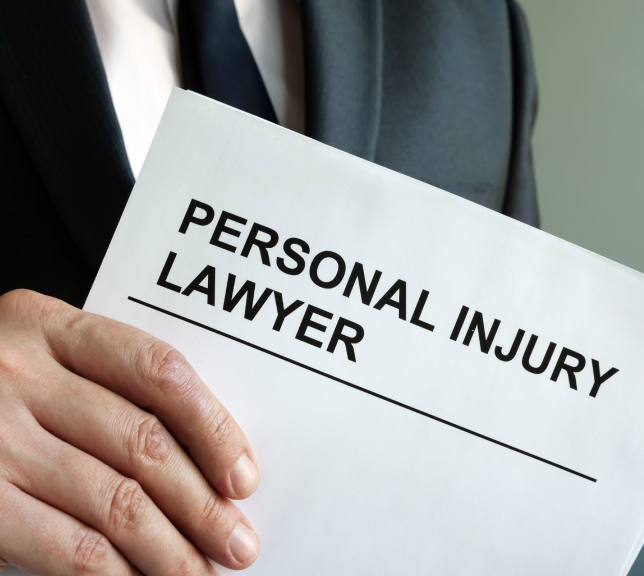
The Steps of a Personal Injury Lawsuit
The process behind personal injury cases is relatively straightforward. Once you take the first step, you’ll be guided from A to Z. If you’ve got a valid claim, here’s what you’ll be looking at:
1
Hire a Personal Injury Attorney
The first step making contact with a personal injury lawyer. In the initial consultation, you’ll likely be asked a series of questions:
- What type of injury did you or your loved one suffer?
- What is the severity of the injury?
- Describe the injury in detail.
- Where did the incident happen?
- Who was at fault?
- Has this injury led to personal and/or financial struggles?
- What are you looking to gain from this personal injury claim?
The purpose of this consultation is to determine whether or not you have a valid claim. If the personal injury lawyer decides there is a legitimate case, they will discuss their fees (percentage of total settlement), plans, procedures, expectations, and more.
Once you both agree on the terms, the process will begin.
2
File a Complaint and Serve the Defendant
Once you gather all the details of the case, your attorney will file a personal injury complaint in the respective civil court. This is the first initial document of the case. It will lay out your accusations of the at-fault party: what they did to cause your injury and the damages you are suffering.
After your attorney files the complaint, they will have one month to serve the defendant. The complaint is physically delivered to them to confirm there is a lawsuit against them. In addition to the complaint, there will be service papers indicating when the defendant must appear in court.
From here, the defendant will hire a personal injury defense attorney and contact their insurance company.
3
Pre-Trial Discovery
The pre-trial process involves both sides presenting evidence and witness information. Both parties will appear in court to discuss the case with the judge, decide if mediation or arbitration is the best course of action, and set a trial date.
Throughout the discovery, both sides will schedule depositions and answer questions under oath. The pre-trial process can take months – or even years. As the trial date approaches, both sides will push for a settlement and make motions on what evidence will be allowed in trial.
4
Taking the Case to Trial (Rare)
For most personal injury cases, the trial will last at least a few days. The judge and jury will determine if the defendant is at-fault for your damages – and what the payout will be. After the trial, both parties can appeal the decision, which can take months/years.
Once the appeals process is over, the losing defendant will be required to pay the damages established during the trial or in the appeal.
5
Agree on a Settlement
Most personal injury cases never go to trial. Both parties can settle the dispute at ANY point in the process noted above – even before the complaint is filed. Going to trial is very expensive for insurance companies and is typically a last resort.
What to Look for in Your Search for a Personal Injury Lawyer?
You can find a personal injury attorney just about anywhere. But not all of them have your best interests in mind. Finding a trustworthy personal injury attorney isn’t difficult – as long as you know what to look for in your search.
Here are some of the hallmarks:
No Out-of-Pocket Costs
To reiterate, personal injury lawyers work on a contingency fee agreement. A trustworthy attorney will not ask you to pay anything upfront. If they demand any fees from you during the consultation (or any time before the case is settled), it’s a big red flag.
Compassion
When you suffer an injury, you’re facing tough times. You’re hiring a personal injury attorney to help you put your life back together. It should be clear in the initial meeting that the attorney genuinely cares about your wellbeing and will not make any compromises in earning the compensation you deserve.
Good Communication Skills
Communication is everything in your relationship with an attorney. A trustworthy personal injury lawyer doesn’t make clients wait unreasonably. If the firm struggles to return phone calls or takes days/weeks to respond to messages, it’s a sign to steer clear.
Now, the best lawyers are busy. If they are too busy to take your case, they should be upfront about it and refer you to another attorney. If it seems like they are indifferent to your concerns, it’s not worth the trouble.
Cautiously Optimistic Attitude
No attorney can guarantee results. Bold promises and telling you exactly what you want to hear is a giant red flag. The legal system is very unpredictable. Earning the maximum compensation is a hard-fought battle – and nothing is guaranteed.
Generally speaking, your personal injury lawyer should give off a cautiously optimistic vibe. A good attorney under-promises and over-delivers, not the other way around.
Frequently Asked Questions
What does a personal injury lawyer do?
A personal injury lawyer provides legal counsel to individuals who have been injured in an accident, which was not their fault. These attorneys manage cases that involve negligent and/or intentional acts – and pursue monetary compensation for the victim.
How long does a personal injury settlement take?
There’s no definitive answer here. Every personal injury case is different and the process is unpredictable. The vast majority of cases never go to trial and are settled in an average of 11.4 months.
What does personal injury protection cover?
Personal injury protection, or PIP, is an insurance add-on that helps to cover medical expenses, regardless of who was at fault. This plan can be used to cover ambulance bills, ER visits, medical follow-ups, prescriptions, lost wages, and more.
What are the dos and don'ts for accident victims?
There are millions of dos and don’t’s for accident victims – we’ll narrow it down to three. Do: Seek medical attention ASAP, document the scene, and hire a personal injury attorney. Don’t: Act erratically after an accident, discuss the accident with anyone other than your attorney, and don’t leave the scene.
What to do after a car accident that’s not your fault?
- Seek medical attention if you are injured.
- Take pictures of the situation.
- Contact the authorities to file a police report.
- Get examined for injuries by medical professionals.
- Get the other party’s information.
- Contact a car accident injury attorney.
The Next Steps
Personal injury law has many uncertainties. The best thing you can do is educate yourself on the basics. You want to approach a personal injury law firm with as much knowledge as possible.
Many people are intimidated by lawyers, we get it.
A good personal injury attorney knows you’re facing a life-altering situation (likely for the first time). Most will be sympathetic and happy to answer any questions to guide you in the right direction.
At Midwest Injury Lawyers, we’ve built our reputation around compassion and expertise. Our mission is to help clients put their lives back together and earn fair compensation after an accident. Get to know our attorneys and see the success stories we’ve had over the years.
For any questions, concerns, or information about personal injury law in Illinois or Indiana, do not hesitate to reach out. Our team is standing by on
Request a Free Consultation
Tell our experienced team about your accident and/or injuries. One of our personal injury attorneys will contact you to schedule a free case evaluation. Remember: you won’t pay for anything unless we secure a compensation on your behalf.
Call (312) 786-5881 or send us a message online to get started.

















































